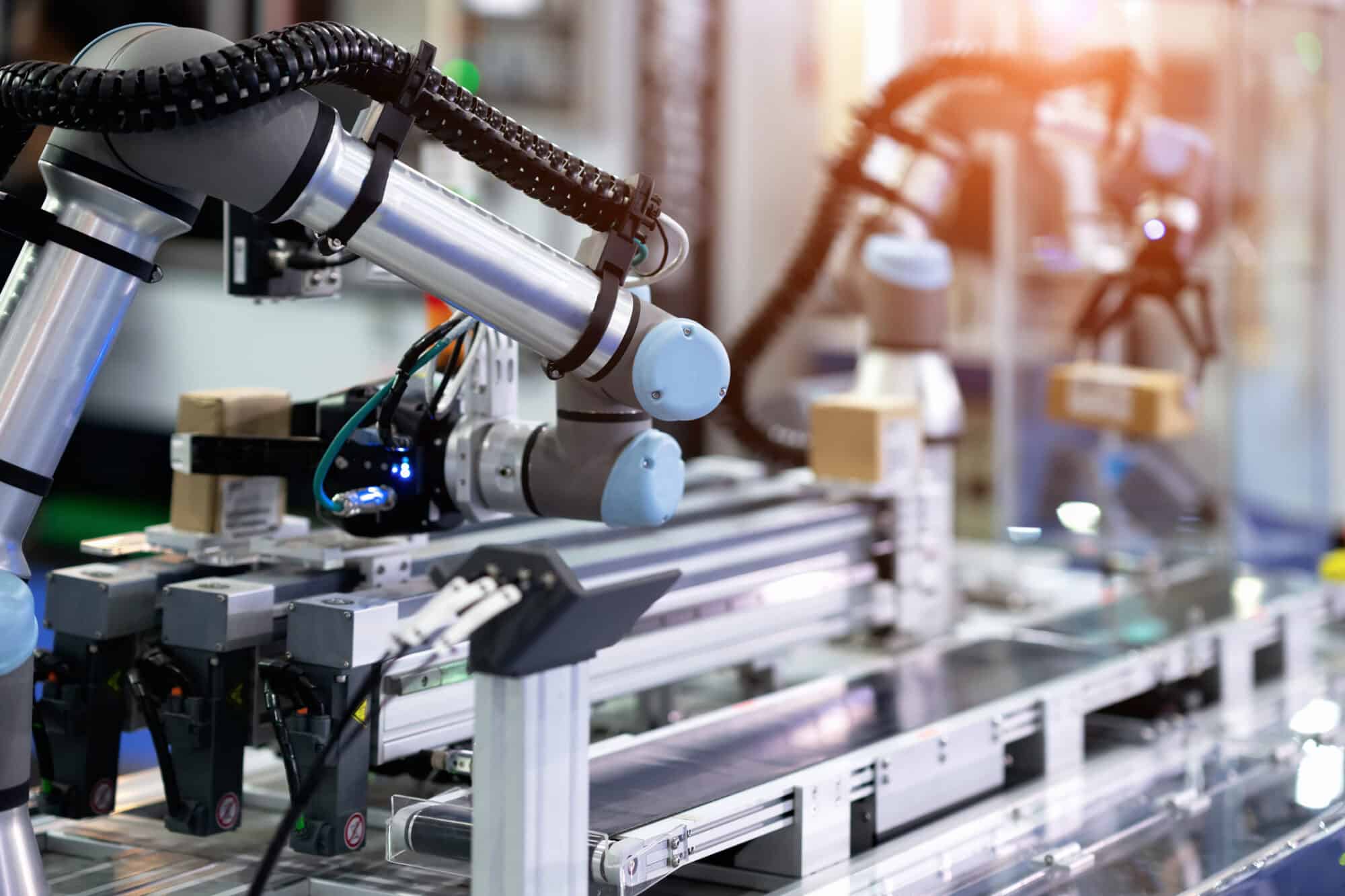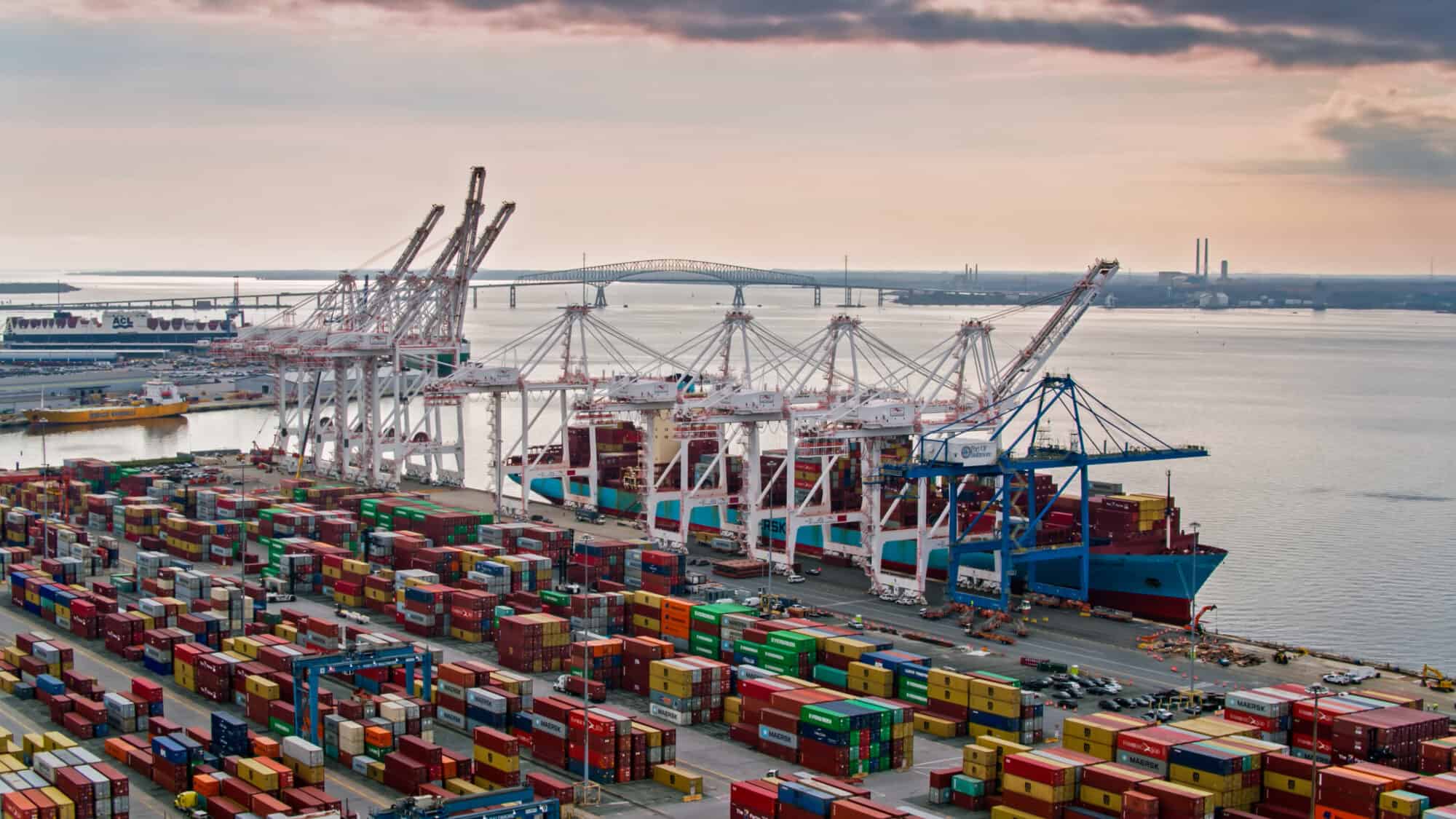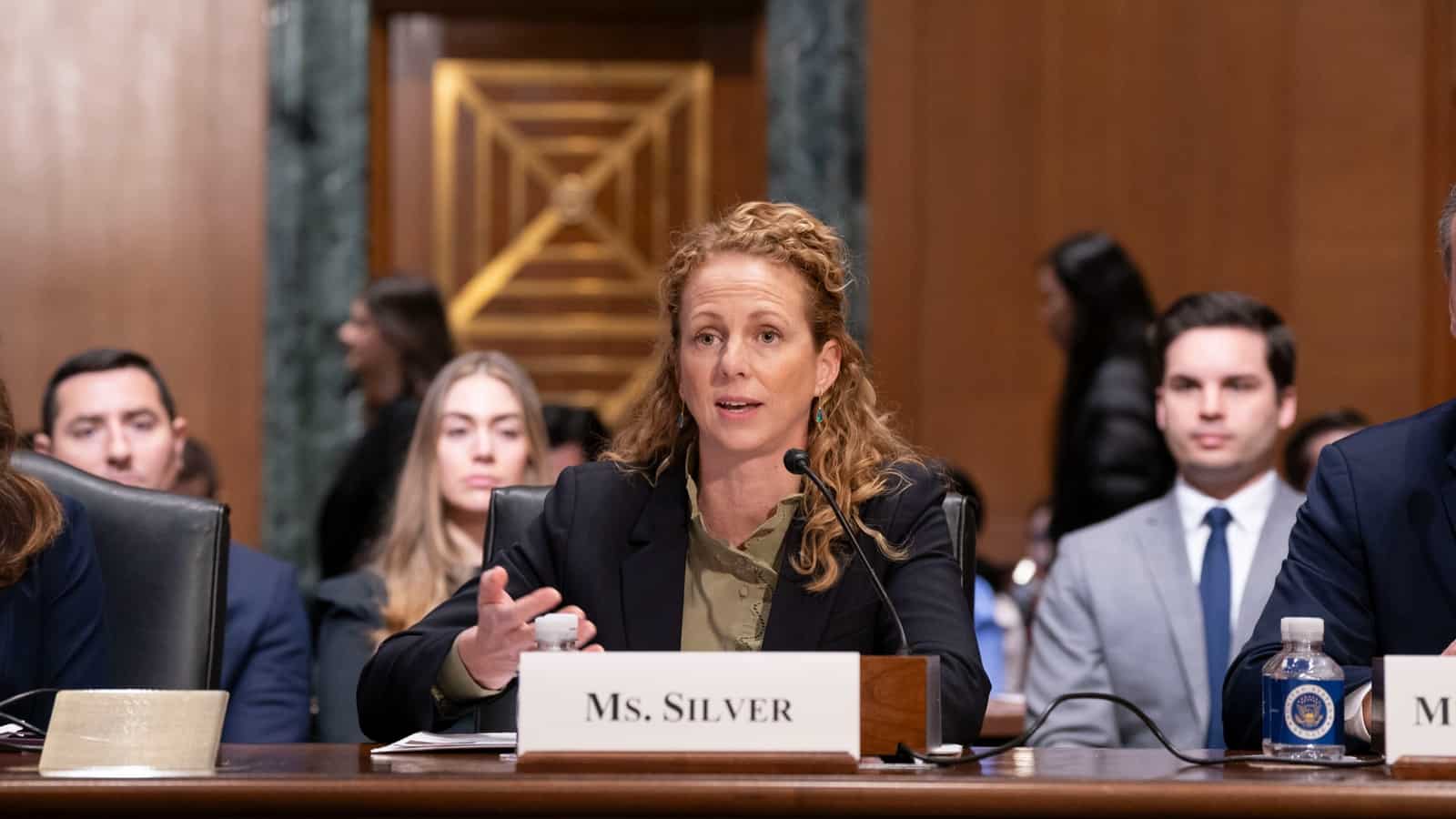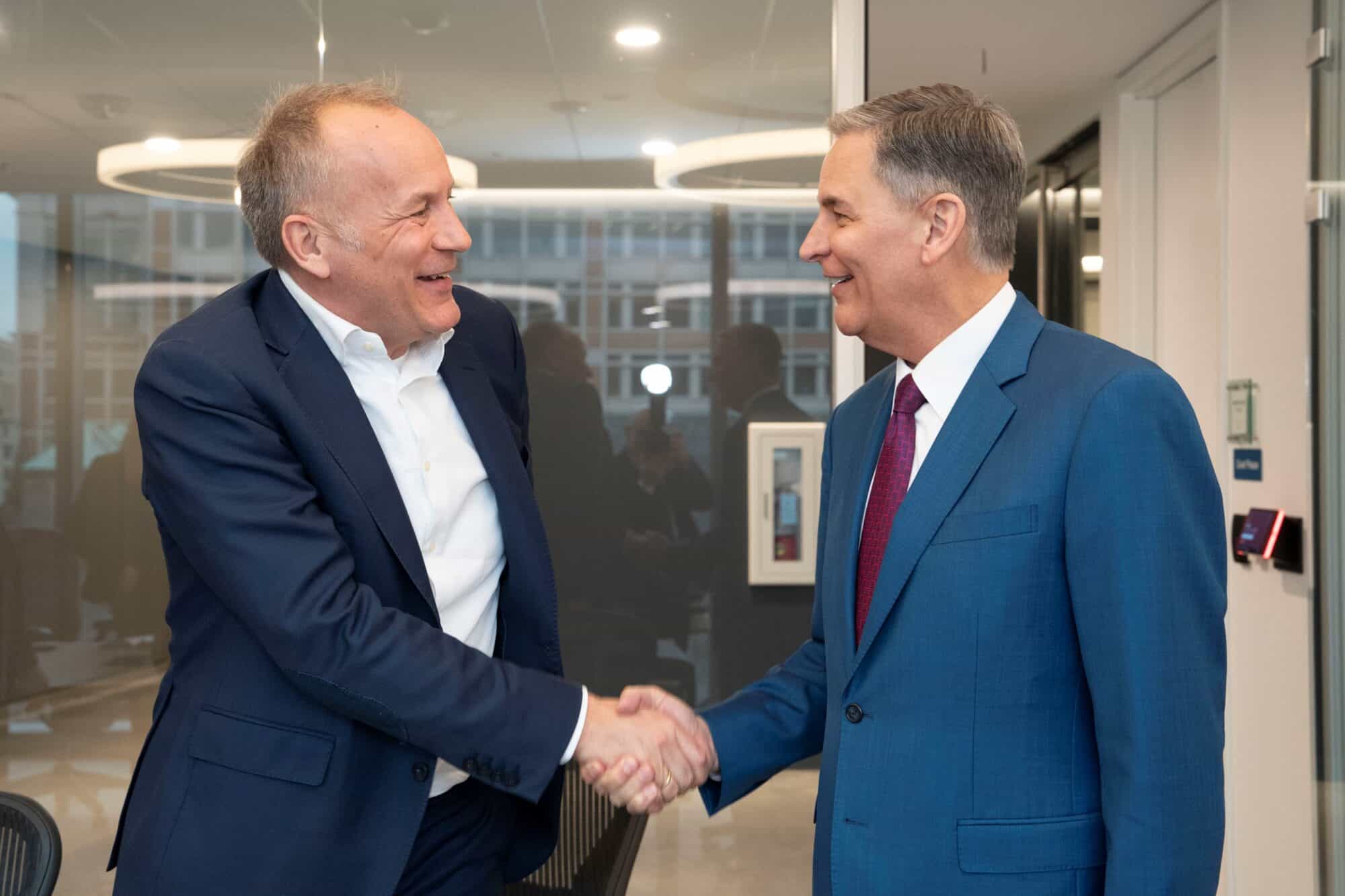NAM: Make Employer-Sponsored Health Insurance Easier

Manufacturers are committed to providing employer-sponsored health insurance to their workers, the NAM told Congress late last week—and that’s why any changes made to the Employee Retirement Income Security Act of 1974 should facilitate rather than hamper those offerings.
What’s going on: “ERISA underpins manufacturers’ ability to provide health insurance to their employees,” NAM Vice President of Domestic Policy Charles Crain said in response to a call by the House Committee on Education and the Workforce majority for comments on how to improve ERISA as the law’s 50th anniversary nears.
- “The law allows manufacturers to provide uniform benefits to workers located across multiple states, and to tailor those benefits to meet the unique needs of their workforces.”
Why it’s important: Manufacturers have continued to offer high-quality health care plans to their employees—even absorbing cost increases in recent years to keep premiums affordable—but they “increasingly find their efforts to be responsible stewards of their health plans undermined by the complexities, bureaucracy and ineffective design of the broader health care system,” Crain told the committee.
What should be done: It is ERISA’s federal preemption of state and local laws that allows manufacturers to offer uniform health benefits, Crain continued, and that preemption must be preserved.
- “Eroding or eliminating preemption would make it significantly more difficult for manufacturers operating in multiple states to offer their employees health insurance because the manufacturer would be forced to comply with cumbersome and potentially conflicting state-based rules, a costly and untenable situation,” he said.
- In addition to maintaining ERISA preemption, Congress should seek to “make health care data more accessible and user-friendly for employer plan sponsors,” and reduce regulatory burdens on employers.
- Given that pharmacy benefit managers contribute to the increasing costs of providing employer-sponsored health care, the NAM also continues to call for PBM reform to increase transparency into these underregulated actors.
Trend of the Week: Smart Factories

In 2024, factories will just keep getting smarter. From product design to supply chain management, the sophistication of Manufacturing 4.0 (the current wave of technological evolution) will keep on growing. Here’s what manufacturers should know about these advances and how the NAM can help.
What manufacturers should do: Manufacturers looking to make their factories smarter are focusing on four key strategies:
- Creating efficiencies to improve the bottom line with automation and other M4.0 technologies
- Leveraging smart factories to overcome challenges, such as the workforce crisis and supply disruptions
- Ensuring connectivity on the factory floor to allow for use of plant data to create new business models and revenue streams
- Using M4.0 technologies to improve quality control, speed time to market, enhance safety, boost profits, contribute to sustainability goals and engage employees
Expert opinion: Companies are increasingly investing in industrial connectivity, according to PTC Vice President of Market Development of IoT James Zhang.
- “Rather than approaching industrial connectivity with point-to-point integrations, companies are developing holistic, enterprise-wide strategies,” he explained.
- “This approach streamlines and standardizes data from heterogenous manufacturing environments to a single industrial connectivity platform to provide secure, reliable data for OT systems, including MES and SCADA, and IT systems, including data analytics and industrial IoT.”
Resources for you: Check out these NAM resources that will help guide you through these technological changes:
- The Manufacturing Leadership Council, the NAM’s digital transformation division, offers extensive advice and expertise on Manufacturing 4.0 technologies and how to use them.
- NAM Cyber Cover can help you protect your smart factories, as the increase in digitization also opens new avenues for cyber criminals.
- Check out this podcast from the Innovation Research Interchange (the NAM’s innovation division), which covers current research into the adoption of cutting-edge technologies.
Read the full 2024 trends report here.
NAM Echoes Senators’ PBM-Reform Call

Pharmacy benefit managers—entities that increase health care costs for both manufacturers and manufacturing workers—are long overdue for reform, the NAM said yesterday.
What’s going on: Senate Finance Committee Chairman Ron Wyden (D-OR) and Ranking Member Mike Crapo (R-ID) announced at a Thursday press conference that they will ask Senate leadership to include in a government funding bill at the end of March legislation to rein in PBMs.
- The NAM, which has been vocal for years about the need for PBM reform , immediately joined the senators’ call for action.
- “Manufacturers stand with Chairman Wyden and Ranking Member Crapo in their calls for PBM reform as soon as possible,” said NAM Managing Vice President of Policy Chris Netram. “Manufacturers are committed to providing health benefits—with 93% of manufacturing workers eligible for employer-sponsored health insurance—even as PBMs continue to drive an increase in health care costs.”
Why it’s important: PBMs make health care more expensive for manufacturers and manufacturing workers by putting upward pressure on the list prices of medicines. Additionally, the three largest PBMs control 80% of the market, giving them tremendous leverage when negotiating contracts with manufacturing employers.
- What’s more, they operate with very little federal oversight and offer minimal transparency into their business models.
What should be done: An overhaul of the PBM framework should include solutions that effectively address rebate, fee and contract structures.
- “PBM reform, including in the commercial health insurance market, must increase transparency, ensure PBMs do not pocket manufacturer rebates and delink PBM compensation from the list price of medications,” said Netram.
Dockworker Labor Talks to Restart Amid Tension

Contract talks between dockworkers and their employer on the East and Gulf coasts have yet to begin, but tensions are already flaring, The Wall Street Journal (subscription) reports.
What’s going on: “The International Longshoremen’s Association … is already threatening a strike against shipping companies and port employers if a deal on a new multiyear contract can’t be reached before the current agreement expires Sept. 30.”
- The ILA, which represents more than 45,000 dockworkers “at ports from Maine to Texas, has told local chapters to resolve local work issues with employers by May 17 so that a coast-wide deal can be negotiated before the current contract expires. Formal negotiations would be scheduled once the local agreements are reached.”
- Talks began in late 2022 but stalled a year ago.
The background: In September, after 14 months of often-tumultuous negotiations and several walkouts and work stoppages, West Coast dockworkers reached an agreement with their employer, the Pacific Maritime Association.
- The Biden administration stepped in to help broker that deal.
Why it’s important: “Any walkout would hit the gateways in the middle of the busiest part of the shipping season, when retailers and other importers prepare for holiday consumer sales.”
- To avoid potential delays, East Coast importers are expected to bring in holiday-season goods early this year or send more goods from Asia to the U.S. via West Coast ports.
- The large wage increases ILA is said to be pursuing could prove difficult for carriers to sustain, given the post-pandemic decline in freight demand.
Extend Pro-Growth Tax Policies, Small Manufacturer Tells Senate

If manufacturing is a team sport, the rules of the game are the U.S. tax code—and to ensure a level playing field for everyone, that code must remain constant, Ketchie President and Owner and NAM Small and Medium Manufacturers Group Chair Courtney Silver told the Senate Finance Committee Tuesday.
The main way to do it, she said, is by restoring three key tax policies: immediate expensing for domestic R&D, enhanced interest deductibility and full expensing.
What’s going on: Thanks to the 2017 Tax Cuts and Jobs Act, Silver’s family-owned, North Carolina–based precision machining company and many other manufacturers were able to grow their companies, invest in workers and give back to their communities, Silver said in testimony during the “American Made: Growing U.S. Manufacturing Through the Tax Code” hearing.
- But two years ago, “the rules of the game began to change, making it more difficult for manufacturers to thrive in America,” she went on. “Crucial policies began to expire.”
Why it’s important: If Congress does not act soon, additional pro-growth tax cuts will expire, further harming manufacturing in the U.S.
- And “more tax increases are on the way,” Silver told committee members, referring to the additional TCJA provisions scheduled to expire next year. “Other critical provisions expire at the end of 2025, which will have a direct impact on the manufacturing sector. Ketchie will be directly harmed by the loss of the pass-through deduction, the increases in our tax rates and the reduced protection from the estate tax.”
Unstoppable combination: The 2017 tax reforms, “paired with pro-growth policies like immediate expensing of capital investments, drove historic growth in the manufacturing sector,” Senate Finance Committee Ranking Member Mike Crapo (R-ID) said during the hearing, citing NAM data on the significant, positive impact of the cuts.
- Indeed, “Ketchie might not be here today if we did not have the economic boom caused by tax reform in the years prior to the pandemic,” said Silver, who called immediate expensing for domestic R&D expensing, enhanced interest deductibility and full expensing “a game-changer for the manufacturing industry.”
Team players: Congress must restore these three provisions and other critical provisions that are set to expire next year.
- “Manufacturing truly is a team sport, and you are all on that team,” Silver told the committee. “Small companies like mine are counting on you to play with us rather than against us, and to ensure that our tax code does the same.”
- The NAM has called on the Senate to advance the House-passed Tax Relief for American Families and Workers Act, which would restore the three key tax policies.
NAM Hosts German, Mexican Delegations

The NAM was host to multiple representatives and dignitaries from Germany and Mexico last week for a series of meetings aimed at strengthening the ties between the two countries and the U.S.
What’s going on: On different days last week, the NAM met with German Ambassador to the U.S. Andreas Michaelis; the leadership of the Mexican Business Coordinating Council; the presidents of the Federation of German Industries and the Germany-based Mechanical Engineering Industry Association; and a delegation from the Germany-based Transatlantic Business Initiative.
- A discussion common to all the gatherings: improving international cooperation to support closer economic partnerships between our countries.

The U.S.–Europe relationship: In a meeting with Michaelis, Germany’s ambassador to the U.S. since August 2023, the NAM expressed the importance of a continued, positive economic relationship between the U.S. and Europe—especially now, given Russia’s continued war against Ukraine.
- “Great to meet with German Ambassador to the U.S. Andreas Michaelis to discuss the importance of strengthening our economic ties and our shared democratic values,” NAM President and CEO Jay Timmons wrote in a social post.
- Germany, the fourth-largest economy in the world, is a vital U.S. trade and investment partner. In 2022, it contributed $196 billion of manufacturing trade and $218 billion of manufacturing investment.

Challenges remain: However, some proposed and expected European Union regulations present a hurdle to future collaboration, a matter the NAM raised in its meetings.
A key partner: In their discussion with Mexican Business Coordinating Council President Francisco Cervantes—with whom Timmons met last summer ahead of the third United States–Mexico–Canada Agreement “Free Trade Commission” in Cancun, Mexico—NAM leaders underscored the significance of the increasingly close trade ties between the U.S. and Mexico.
- In 2023, for the first time in two decades, Mexico became the leading source of goods imported into the U.S., and in 2022, the value of the U.S. products and services trade with Mexico was $855 billion.
- The CCE is Mexico’s broadest business federation.
Concerning disruptions: Last year, in a move that worried both the NAM and the CCE, the U.S. twice suspended the processing of commercial imports from Mexico so it could redirect U.S. Customs and Border Protection personnel to handle an influx of migrants at the U.S.–Mexico border.
- These temporary closures cost manufacturers in the U.S. hundreds of millions of dollars each day.
USMCA: The groups also discussed the USMCA, underscoring the importance of maintaining this critical agreement while also continuing to spotlight commercial challenges in Mexico:
- Its energy policies, which favor Mexican energy firms and have denied and revoked permits to major U.S. energy investors
- Its de facto ban on genetically modified corn, as well as some of its telecommunications-sector policies and its treatment of state-owned enterprises
NAM to White House: Maintain, Improve Trade Facilitation Measure

As lawmakers consider proposals to scale back the de minimis treatment of low-value goods entering the U.S., the NAM and several of its partners are reminding stakeholders of the importance of having a streamlined, tariff-free customs entry process for such imports.
- These shipments are still subject to all U.S. laws and information requirements that enable enforcement at the border.
Last week, a group consisting of labor unions, select business associations and other stakeholders formed a coalition against certain de minimis imports, according to CNBC.
A critical provision: The NAM and six allied groups pushed back, urging the White House to maintain the so-called “de minimis” import entry type, which permits goods valued at less than $800 to enter the U.S. in a streamlined manner and tax-free.
- “De minimis has benefitted thousands of American small businesses across all sectors,” said the groups. “For example, de minimis allows businesses to obtain inputs for domestically manufactured products into the United States more efficiently and with fewer unnecessary administrative requirements.”
- “It has also made purchasing goods online more affordable and accessible for consumers at a time of inflation and supply chain challenges. … The average value of a de minimis package is roughly $50. If de minimis were to be eliminated or significantly degraded … a $50 delivery could become a more than $100 delivery.”
Combating disinformation: Proponents of eliminating or significantly degrading de minimis cite several concerns with the entry type that are unfounded, the NAM and its allies said.
- “There is no evidence that illegal products are more prevalent in de minimis shipments,” they went on, citing a CBP executive who refuted the false claim that de minimis shipments aren’t screened.
- When it comes to fentanyl, “[a]s government enforcement statistics make clear, the overwhelming majority of fentanyl enters the United States in large shipments from Mexico … smuggled in passenger vehicles, by pedestrians, and concealed in truck shipments. De minimis packages, on the other hand, arrive in the United States overwhelmingly by air transportation throughout the country.”
- Finally, eliminating the de minimis entry type would strain border control. “[D]egrading de minimis and routing one billion shipments into more resource intensive processing streams would require tens of thousands of CBP personnel to process information that is not related to enforcement and collect duty, rather than spending that time on activities that would actually interdict illicit items.”
Other solutions: The letter urges the administration to consider “practical, innovative ways to improve de minimis without increasing costs for consumers and small businesses.”
- Customs and Border Protection should use the authority it already has to build on existing enforcement of U.S. trade laws at the border by separating the vast universe of compliant shipments from illicit packages.
- This can be done through a rulemaking to formalize ongoing tests that require additional information on low-value shipments, closing information sharing gaps and employing a more “future proof” approach to include the use of technology.
A Merck Manufacturer Leads the Way

For Alexandra Bryant-Boose, being a mentor matters—because she’s seen firsthand what good mentorship can accomplish.
From a mentor at a homeless shelter where she and her mother lived for a time, to an eighth-grade science teacher who pointed her toward a scholarship at an engineering summer program, she is grateful for all the people who helped guide her in the right direction.
- “There were so many experiences where someone gave me an opportunity,” Bryant-Boose said.
Today, as an automation specialist at Merck Manufacturing Division, part of Merck in Durham, North Carolina, Bryant-Boose is paying that opportunity forward, making sure that others are able to find their passion and achieve their dreams.
Discovering manufacturing: Bryant-Boose graduated from North Carolina State University with a degree in chemical engineering, a concentration in biomolecular engineering and a double minor in microbiology and biotechnology.
- When the COVID-19 pandemic hit, she began looking at careers at Merck, and in her words, just stumbled onto automation. After doing some research, she was hooked.
- “Automation is like playing investigative journalism or being a detective,” said Bryant-Boose. “Sometimes there’s a problem and no one will know what the issue is—and automation is about looking into the nitty-gritty, getting a little dirty and opening up a system to find what the issue is. That way of thinking and working is what makes me enjoy what I do.”
Educating young people: In 2022, Bryant-Boose launched a project designed to spread opportunities in science, technology, engineering and math to young people who might not otherwise be able to learn about those subjects.
- She started small in 2022, with a program at a local middle school. Last summer, in collaboration between the Society of Women Engineers and Durham Parks & Recreation, the project grew into a STEM summer camp with about 30 Merck volunteers.
- “We hosted 90 kids in three locations who all got that face-to-face interaction with Merck employees,” she said. “It was a lot of work to organize, but it was good to pay it forward. I’m giving kids someone to look up to and helping them figure out where they might go.”
Promoting support: Bryant-Boose is also a talent acquisition lead for the League of Employees of African Descent at Merck. The internal group, which offers both mentoring and reverse mentoring—in which younger employees provide advice and knowledge to executive team members—gives her a chance to both advise and be advised.
- “I like being able to give people advice that I wish I had,” said Bryant-Boose. “At the end of the day, it’s good to be around people who can relate to things you’re going through. And I find that LEAD allows me to do that at Merck.”
Gaining recognition: Recently, Bryant-Boose was named an Emerging Leader in manufacturing by the 2024 Women MAKE Awards, a distinction for a select few women under the age of 30 who have achieved unique accomplishments at the start of their careers in manufacturing.
Offering advice: Some of Bryant-Boose’s best advice is to encourage people— especially women—to find their own mentors.
- “I know coming into what’s historically been a male-dominated field can be intimidating,” said Bryant-Boose. “If you’re a woman considering manufacturing, or actively getting into it, find that person who can be your mentor. Claim them. Go to them when you need someone to talk to.”
Go deeper: To see the full list of 2024 Women MAKE Award Honorees and Emerging Leaders, click here. To learn more about the Women MAKE Awards, click here, and to learn more about the MI’s free Women MAKE Mentorship Program, click here or contact the team at [email protected].
Top DOE Official to NAM: You’re Critical to America’s Energy Future

The Biden administration sees private-sector partners as essential to the future of American energy policy and production, Deputy Secretary of Energy David Turk told NAM board members in Phoenix, Arizona, recently.
What’s going on: “I don’t think we can do anything in the federal government that impacts the real world without enabling, listening to, supporting and trying to be very thoughtful” with private-sector partners, Turk said, calling manufacturers a key force in helping the United States “accelerate our energy independence.”
- In a discussion about energy policy in the clean energy transition—with a focus on nuclear energy, hydrogen and the role of the federal government—Turk took questions and comments from leading figures in the private-sector energy economy on issues ranging from the Biden administration’s freeze on liquefied natural gas export permits, to the need for a robust hydrogen economy, to the implementation of long-awaited transmission infrastructure to ensure energy reliability and affordability.
- The talk also touched on the potential impact of increased natural gas exports on domestic prices and consumers. NAM board members argued that higher exports would not make gas more expensive for U.S. consumers and LNG exports are vital to ensure energy security for our allies.
The conversation: In a roundtable lunch, NAM board members told Turk that the push and pull of the Biden administration’s policies on energy—calling on U.S. producers to increase energy output to reduce consumer prices while calling for an overall reduction in fossil fuel production—makes their goal of increasing American energy reliability and independence more difficult to realize, while creating market gaps that can be filled by cheap energy from Russia and other geopolitical rivals.
“Why did this happen? Why did it come out? How does that achieve any of our shared objectives on the national security stage in terms of climate change?” NAM President and CEO Jay Timmons asked Turk, noting that the Biden administration’s decision to stop approving new export licenses for U.S. LNG undercuts its own stated carbon agenda in the long run.
Turk told NAM board members that U.S. consumers pay roughly one-fifth as much for LNG as those in Asia and Europe, which he called “huge” for economic competitiveness, but still acknowledged that the differential doesn’t accommodate the needs of all manufacturers involved in the energy economy.
“There’s a competitive advantage if our manufacturers are paying less for a key input than others,” Turk said. “There’s a benefit and a difference between the price right now that we pay in the U.S. versus others internationally.”
Meeting matters: The U.S. is the world’s top exporter of LNG, an affordable, plentiful energy source that’s in growing demand and is much cleaner than traditional forms of coal-powered energy—especially in Europe, where LNG has been critical in keeping allied countries from seeking Russian energy sources. For NAM board members to be able to confront Biden administration officials on energy policy directly is a huge win for LNG producers and for manufacturers overall.
“We have more dialogue, more discussion, more interaction with members of the Biden administration than any administration that I’ve been involved in with the NAM,” Timmons said. “Where we have differing opinions, we do get feedback”—and, in the case of the meeting in Phoenix, we provide it.
Trend of the Week: Building Resilience

Some disruptions—like global pandemics—are just too unexpected to anticipate. As manufacturers consider the unknowns they may face in the years ahead, they are prioritizing general resilience instead of attempting to plan for everything. Here’s what you should know about this major trend in 2024.
What manufacturers should do: Manufacturers should focus on these four areas to increase their resilience, according to the NAM’s experts:
- Enhance cybersecurity to guard against new and emerging cyberthreats.
- View resilience as a necessary tool to protect business amid economic uncertainty.
- Shift leadership strategies to build a strong plan for future success, including establishing a path for development and cultivation of future leaders.
- Plan for more and as-yet-unknown disruptions in the future.
Expert opinion: Mike Lipinski, cybersecurity partner at Plante Moran, advises manufacturers concerned about the rising threat of ransomware. He points out how the dangers have evolved in recent years:
- “Manufacturing businesses that fall prey to ransomware can be attacked multiple times. Adversaries who breach your system sell other cybercriminals information about how they got in. The risk isn’t only data theft and access to information but also the criminals’ ability to create backdoors into your environment.”
Resources for you: Check out these NAM resources that can help companies bolster their resilience:
- Here is a useful guide that can guide you through dealing with disasters.
- Check out the NAM Shipping & Logistics program, which can help you cope with delays in shipments and funds in case the unexpected happens.
- If you’re facing legal issues, the NAM’s Legal Referral Service, powered by Meritas, can connect you to world-class legal talent in every sector of law.
Read the full 2024 trends report here.
